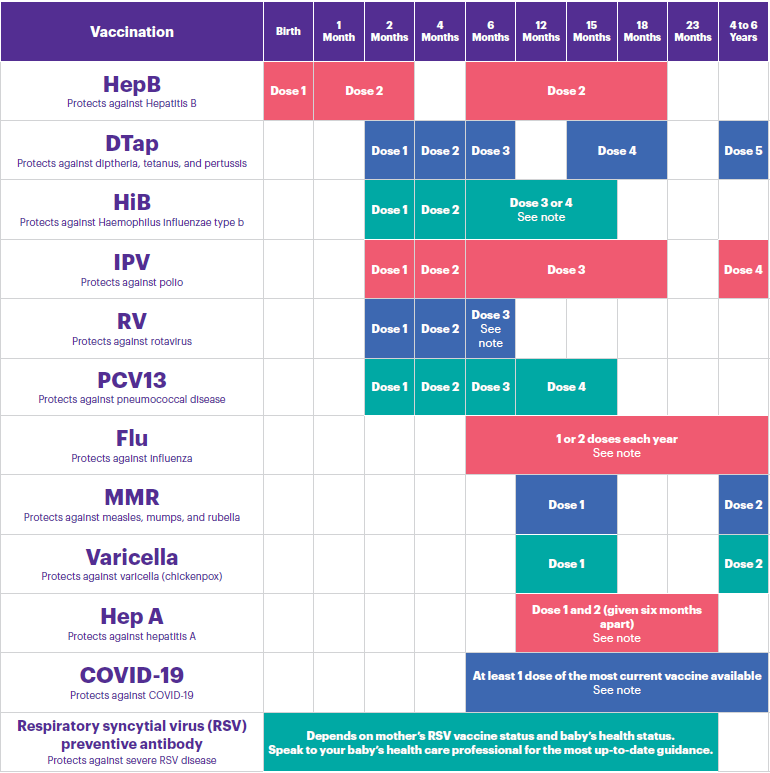Vaccination for babies
Vaccination for babies is crucial for protecting them from various infectious diseases.
1. Recommended Vaccines
- Hepatitis B: Typically given at birth and again at 1-2 months and 6-18 months.
- DTP (Diphtheria, Tetanus, Pertussis): Administered at 2, 4, and 6 months, with booster shots later.
- Polio: Given at 2, 4, and 6-18 months.
- MMR (Measles, Mumps, Rubella): First dose is usually at 12-15 months.
- Varicella (Chickenpox): Generally given at 12-15 months.
- PCV (Pneumococcal conjugate vaccine): Administered at 2, 4, 6, and 12-15 months.
- Hib (Haemophilus influenzae type b): Given at 2, 4, and 6 months, with a booster at 12-15 months.
2. Schedule
- Vaccination schedules vary by country, but many follow guidelines from organizations like the CDC (Centers for Disease Control and Prevention) or WHO (World Health Organization).
3. Benefits
- Vaccines protect babies from serious diseases, reducing morbidity and mortality rates.
- They contribute to herd immunity, protecting those who cannot be vaccinated.
4. Safety
- Vaccines undergo rigorous testing for safety and efficacy before approval.
- Common side effects are usually mild, such as soreness at the injection site or a low-grade fever.
5. Importance of Timely Vaccination
- Adhering to the vaccination schedule is essential to ensure maximum protection as babies are particularly vulnerable in their early months.
6. Consultation with Healthcare Providers
- Parents should discuss any concerns with pediatricians, who can provide information tailored to their child’s health needs.


Comments
Post a Comment